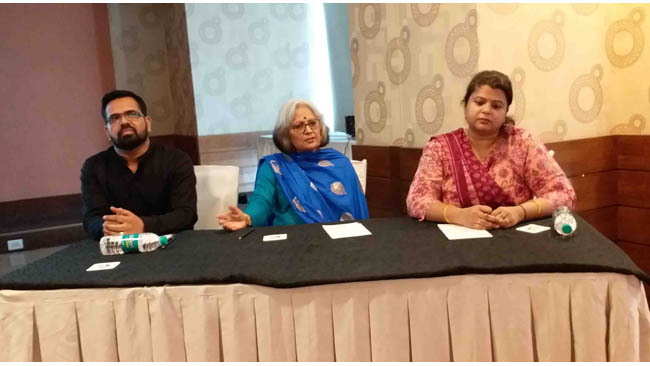
Jaipur, November, 2019. For a state where every
fourth person is between the age group 10-19 years, the 1.57 crore adolescents
of Rajasthan represent a huge opportunity for the state to transform its social
and economic profile. But experts insist this is possible only if substantial
investment is made to improve the health of this young demographic.
Speaking at a special workshop organised by the Population Foundation of India
in Rajasthan today, Dr Amita Kashyap who is the Head of Department, PSM, SMS
Medical College said, that with the advent of technology adolescents have got
access to the content which was earlier not easily available for them.
Emphasising on the need of comprehensive health education Dr Amita said,
"easy availability of content to satiate their curiosity, puts adolescents
at increased risk. So it increases responsibility of service providers to
provide bigger vision and accurate knowledge. For this, we have to go to the
people within the community and media can play a crucially productive role in
providing healthy, safe and productive life to adolescents through responsible
reporting."
Dr Kashyap’s concerns are valid given that the
Centre’s key initiative – adolescents who are 23% of state population have
different needs than young people or children. This is the transition phase for
adolescents between childhood and adultdhood. More than one-third of all girls
in the state are married before they turn 18. Prevalence of anaemia among
adolescent girls is as high as 49% compared to 22% of adolescent boys.
Government is implementing Rashtriya Kishor
Swasthya Karyakram (RKSK) in ten focus districts of Rajasthan and plans to
strengthen it in other districts as well. There are several other initiatives
taken by government to strengthen the counselling services for adolescents,
this includes convergence with other departments to maximize reach.
Explaining the situation at the grassroot level, Mr.
Om from Jatan Sansthan – an NGO that has been working with young people for
nearly two decades, said that, to make people aware about comprehensive health
education we need to inform them in people's language. Sharing his experience
of working in south Rajasthan he said that adolescents are lacking right
information about adolescent and reproductive sexual health. Taboos attached
with reproductive health, absence of supportive infrastructure and lack of the
knowledge about products of management are challenges to be addressed.
"Media can play vital role in providing information, to increase awareness
about adolescent and reproductive health to find sustainable solution of these
challenges," said Mr OM.
Nikita Srivastav, Sr. State Program Manager, Population Foundation of India
(PFI) Rajasthan office also spoke at the workshop and said, “In order to take
this issue forward it is important that media ensure active ownership for the
issue in the state, so that the efforts of organizations like PFI reaches the masses and an
enabling environment is created for the issue.”
Population Foundation of India has already held
eight youth-led consultations across the country to identify and put forward
challenges and recommendations to improve adolescent health. Apart from
Rajasthan, PFI has
been working in Uttar Pradesh and Bihar to increase awareness of adolescent
health programmes and expand health services especially for the vulnerable.